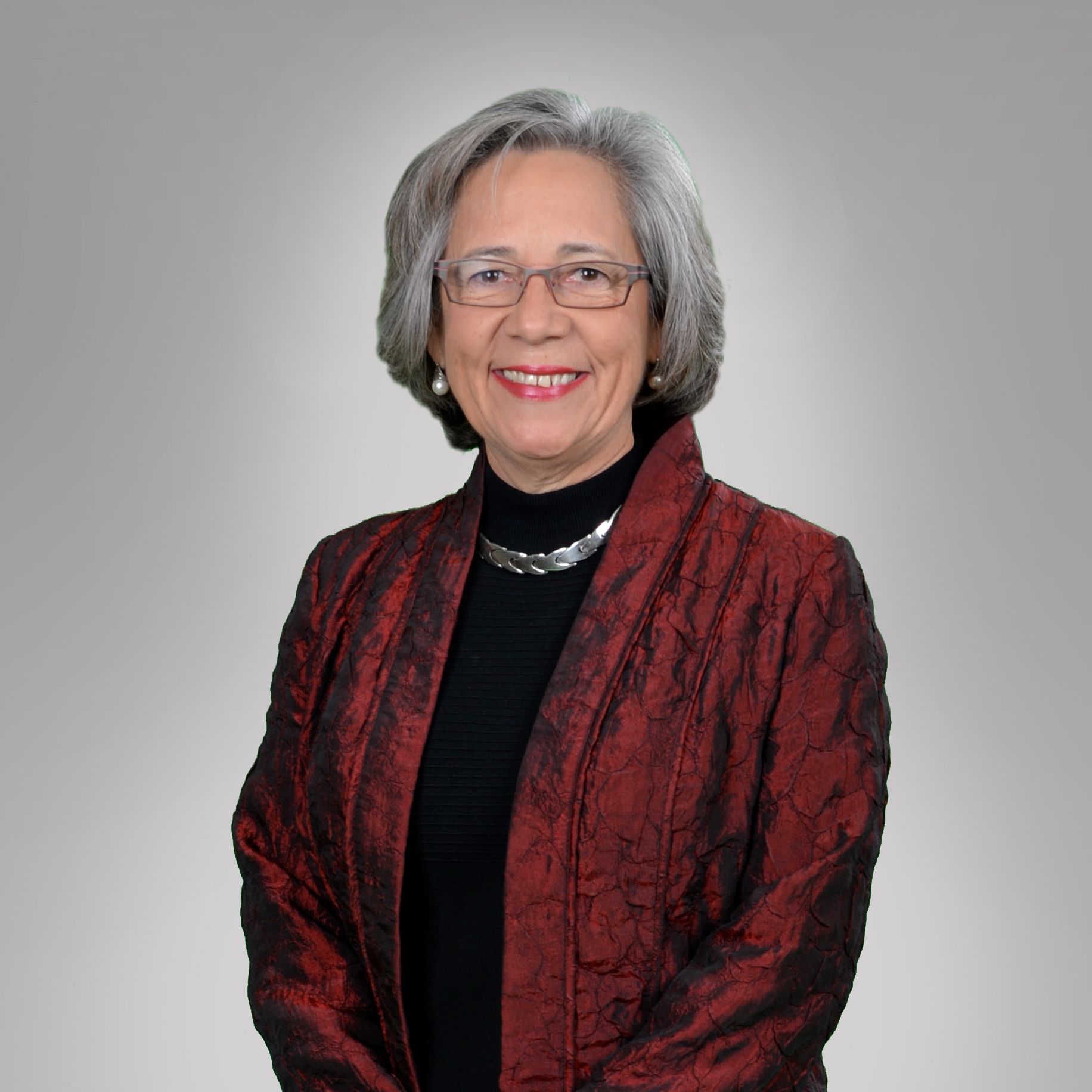Empowering Entrepreneurs, Strengthening Communities
Written by Janie Barrera, LiftFundThere’s a familiar proverb: “Give a man a fish and you feed him for a day; teach a man to fish and you feed him for a lifetime.” As a small business lender, I often add to this saying — help him buy the pond and he will feed his family and community. At LiftFund, providing capital to entrepreneurs is our core business. We believe entrepreneurship is essential to the health and growth of the U.S. economy, and is part of the solution for achieving financial well-being for millions of Americans. As Federal Reserve Chair Janet Yellen has noted, business ownership is one of the building blocks of economic opportunity and is a significant source of household wealth.1 Although entrepreneurship can build assets, our work begins with building the financial well-being of the individuals we serve. Entrepreneurs often need assistance in strengthening their own finances in order to access the capital necessary for successfully launching, sustaining, and expanding their businesses.
LiftFund began making microloans to entrepreneurs in 1994. The organization — then called Accion Texas — started with a $175,000 loan from four San Antonio banks. Today, we lend across eight states (Texas, Tennessee, Louisiana, Arkansas, Mississippi, Missouri, Alabama, and Kentucky) and in 2014, we lent $26 million to small businesses, with an average loan of $16,400. With that capital, they created nearly 2,000 jobs and retained more than 3,600 jobs, often in struggling communities where a good job matters deeply to all. Throughout our more than 20-year history, we have seen many economic cycles and we’ve learned to adapt, even managing dramatic growth through the Great Recession, when credit markets dried up and new businesses found it nearly impossible to gain access to capital. Today’s landscape continues to change. Although financial markets may evolve, the need for capital remains, and entrepreneurs, who are risk-takers at heart, face particular challenges in navigating the path to financial security. LiftFund focuses on both the needs and the enormous strengths of the individuals we serve, supporting deserving entrepreneurs in fulfilling their economic goals.
We See Potential Where Others See Risk
The U.S. Small Business Administration defines a start-up as any business in operation for less than two years. By that measure, we provide 52 percent of our loans to start-ups. We also serve a significant proportion of underserved entrepreneurs, including women- and minority-owned businesses. Serving entrepreneurs is risky business, but over time we’ve refined our approval process and our business support services so that we can grow and thrive along with our borrowers. We provide a wide variety of classes and one-on-one counseling sessions to help our clients learn about credit and assess their readiness for a loan. But that is only the beginning — we also offer continuing education to help business owners maintain and grow their businesses, such as classes on business continuation planning and human resources for small businesses. The approach seems to be working. According to the Bureau of Labor Statistics, businesses have an overall survivability rate of just under 80 percent in the first year.2 In contrast, according to an Aspen Institute analysis of LiftFund data, the survivability rate of our borrowers is 96 percent.3 In addition, LiftFund borrowers repay their small business loans at a rate of 97 percent, even though more than 50 percent have a credit score below 650.
Looking beyond a credit score can move people into financial success. Consider our client Ofelia Posas, a Honduran immigrant living in New Orleans who applied for her first loan after only nine months of residency in the United States. Her first loan of $500 helped her start as a Mary Kay consultant and build her credit with her Individual Taxpayer Identification Number, which laid the foundation for greater access to capital. Today, she is on her third loan of $7,000, is a director for Mary Kay in New Orleans and leads a team of 50 consultants.
Our approach is both personal and rigorous. Our loan officers take a personal interest in our clients and their businesses and often form lifelong relationships in the process. Applicants who may not initially qualify for one of our loans will get a second and sometimes third look to identify other qualities that may be indicative of their repayment potential. Any resulting approvals tend to be based on our staff’s experience in serving our target demographics.
Talking about personal and business finance is at the heart of what we do. Whether a client applies for a business loan online or comes into our offices, we provide consultation that prepares the small business owner with a clear understanding of what it means to take on debt. Our goal when visiting with clients is to help them understand where they are financially, both personally and professionally, so they can make good decisions for themselves and their businesses. Our average client has a limited understanding of how a low credit score can affect him or her and his or her business beyond access to credit. That client also often does not know how to repair his or her score. Rather than judging them, we use our consultations as learning opportunities.
We encourage all of our clients, whether or not they receive a LiftFund loan, to be honest with themselves and mindful of their situation. We help them create or assess their business plan in a realistic light while considering other factors that could affect their businesses’ survivability, such as competition, economic forecast, or the potentially negative effects of street construction. We provide technical assistance throughout the process, from navigating start-up permitting and business planning to marketing and human resource management to seeking future capital through traditional banks. We work intensively with clients on financial growth, but we’ve also committed to tracking our own performance and our borrowers’ success through our internal risk model of 18,000 borrower files.
Opportunities for Reaching Scale
In addition to our core mission of providing credit and services to traditionally underserved entrepreneurs, we are also committed to providing leadership and innovation to the microlending industry, which has yet to grow to scale. We collaborate with other community development finance institutions (CDFIs) directly and through trade organizations, such as the Association for Enterprise Opportunity and Opportunity Finance Network, and constantly push ourselves to serve more clients, both more effectively and efficiently.
To meet the growing demand for our services, we centralized our work and created scalable systems. We have our own online application system and we have developed a risk assessment model using our own portfolio. We have shared our MMS4 platform, a tailored customer relationship management platform, with other CDFIs to help them streamline their own online application processes. Similar to other CDFIs, our portfolio is diverse and durable. We serve native-born and immigrant entrepreneurs, men and women, veterans, urban and rural businesses, and the full spectrum of racial and ethnic backgrounds. As a result, we have been able to model and test borrower risk and provide a variety of clients with affordable financial products.
On the heels of the Great Recession, we knew we had to do more to serve more start-ups or unscored credit applicants. After considerable research and testing, we launched the Promise Loan in 2012. This financial product relies on a quiz that assesses business acumen, self-reflection, trustworthiness, perseverance, and an understanding of key mathematical concepts. These loans, which cap out at $5,000, are offered to individuals who would not otherwise qualify for one of our traditional microloans. Thanks to the Promise Loan, we have provided more than 1,600 entrepreneurs with capital so they can build assets, shore up their credit, and launch or grow their businesses.
We have taken the Promise Loan premise — efficient and underutilized risk modeling — even further with Automatic Approval, a product that emerged in a rapidly changing lending environment. If an applicant passes our risk model with verification from one to two financial documents, he or she can close on the business loan within two or three business days. Today, we are still modeling both products, and we plan to share the findings and product with our MMS customers.
Partnering is Key
We know that partners are key to our success. They help us share our story, they provide grants and debt capital so we can carry out our work, they refer clients to us, and they help us scale up our small business lending to assist more entrepreneurs. For example, we connect our entrepreneurs with individual lenders by partnering with the online lending platform Kiva. In addition, we partner with Goldman Sachs to serve established businesses in economically disadvantaged communities, and we partner with the National Association for Latino Community Asset Builders on the emerging Latino Loan Fund, which leverages our money by providing a loan loss reserve. The reserve allows us to take on more risk. Each one of these programs draws on the respective strengths of the partners to better meet the needs of underserved entrepreneurs.
At LiftFund, we never forget that our reason for being is the individuals we serve. This year, I traveled all over our footprint and was reminded that the stories of success, struggle, and gratitude are real. Our loans, coupled with the drive and leadership of our borrowers, are powerful. Elizabeth Govea, owner of Vintage Tile in McAllen, Texas, shared with me that for her business to grow, she needed to build a warehouse and hire employees to gain contract opportunities. She learned about our organization through the local university small business center and was able to work with our lending team to secure a $35,000 loan with a reduced interest rate from LiftFund’s partnership with the City of McAllen. Elizabeth’s loan was made possible by the Latina Loan Fund, a small business loan fund for Latina entrepreneurs created through a partnership between LiftFund, the Howard Buffett Foundation, and the Eva Longoria Foundation. By helping Elizabeth strengthen her own financial health and ability to take on a loan, we empowered her to extend her business’s success to her community. Her story shows the power of connecting to community and building opportunity as a business owner and job creator. Elizabeth, and so many hardworking individuals like her, deserves financial access and we’re proud to be part of that success.
NOTES
- Janet Yellen, “Perspectives on Inequality and Opportunity from the Survey of Consumer Finances.” Speech at the Conference on Economic Opportunity and Inequality, Federal Reserve Bank of Boston, October 17, 2014.
- Bureau of Labor Statistics, Business Employment Dynamics Establishment Age and Survival Data, Table 7.
- FIELD at the Aspen Institute, microTracker.
- LiftFund created the Microloan Management System in 2008, but has since expanded the platform for use with larger loans. The platform is now known simply as MMS.




